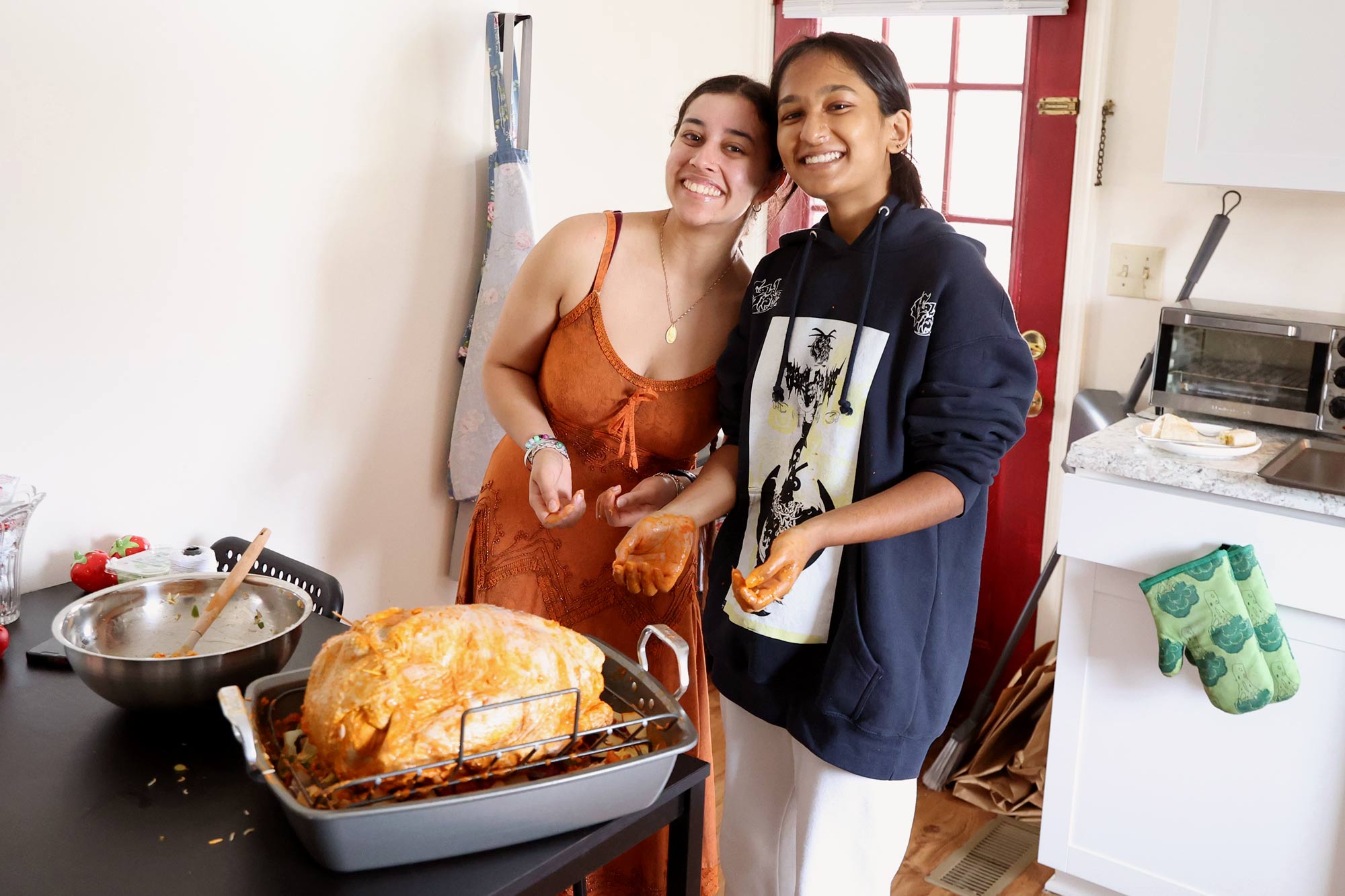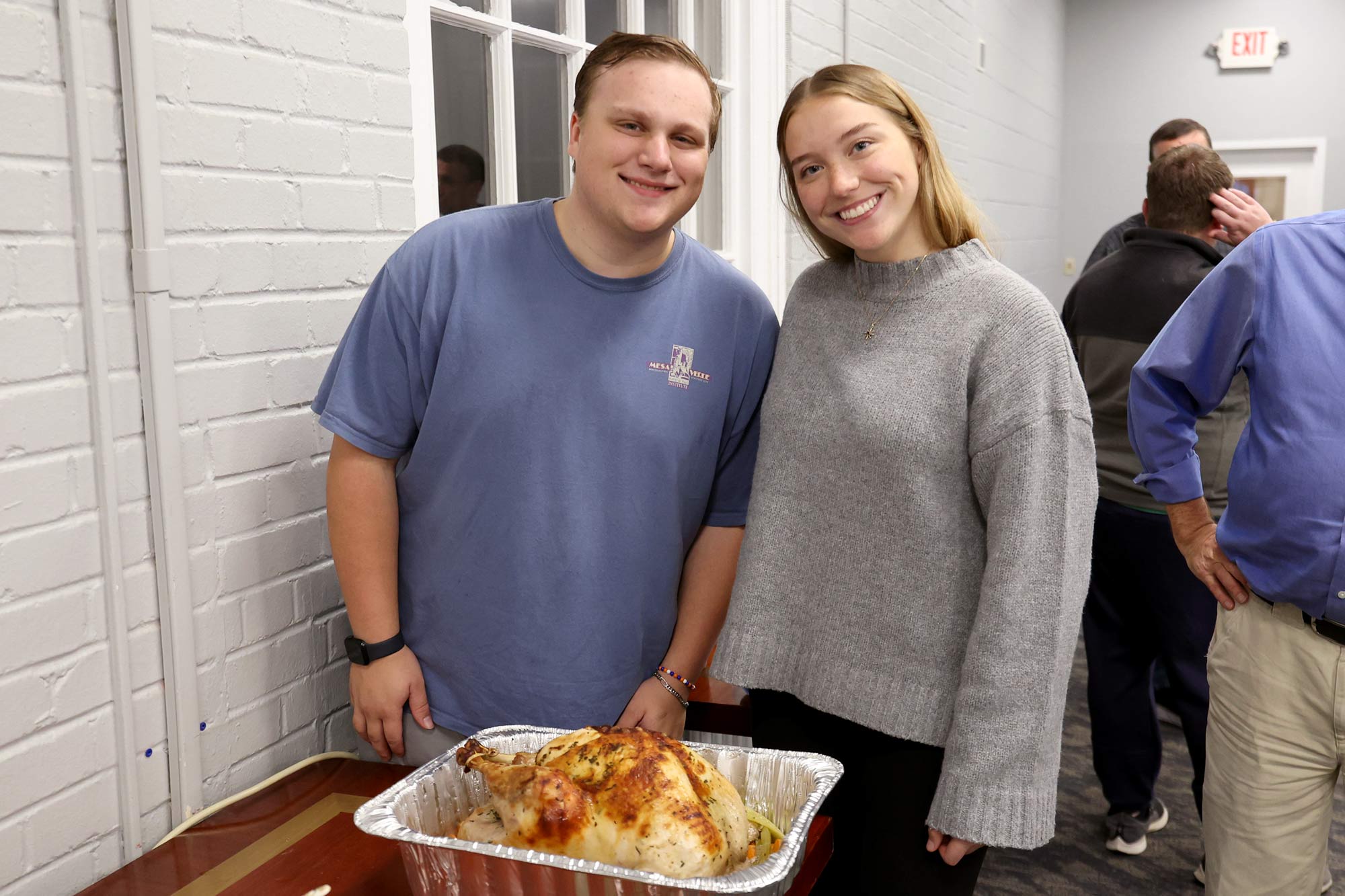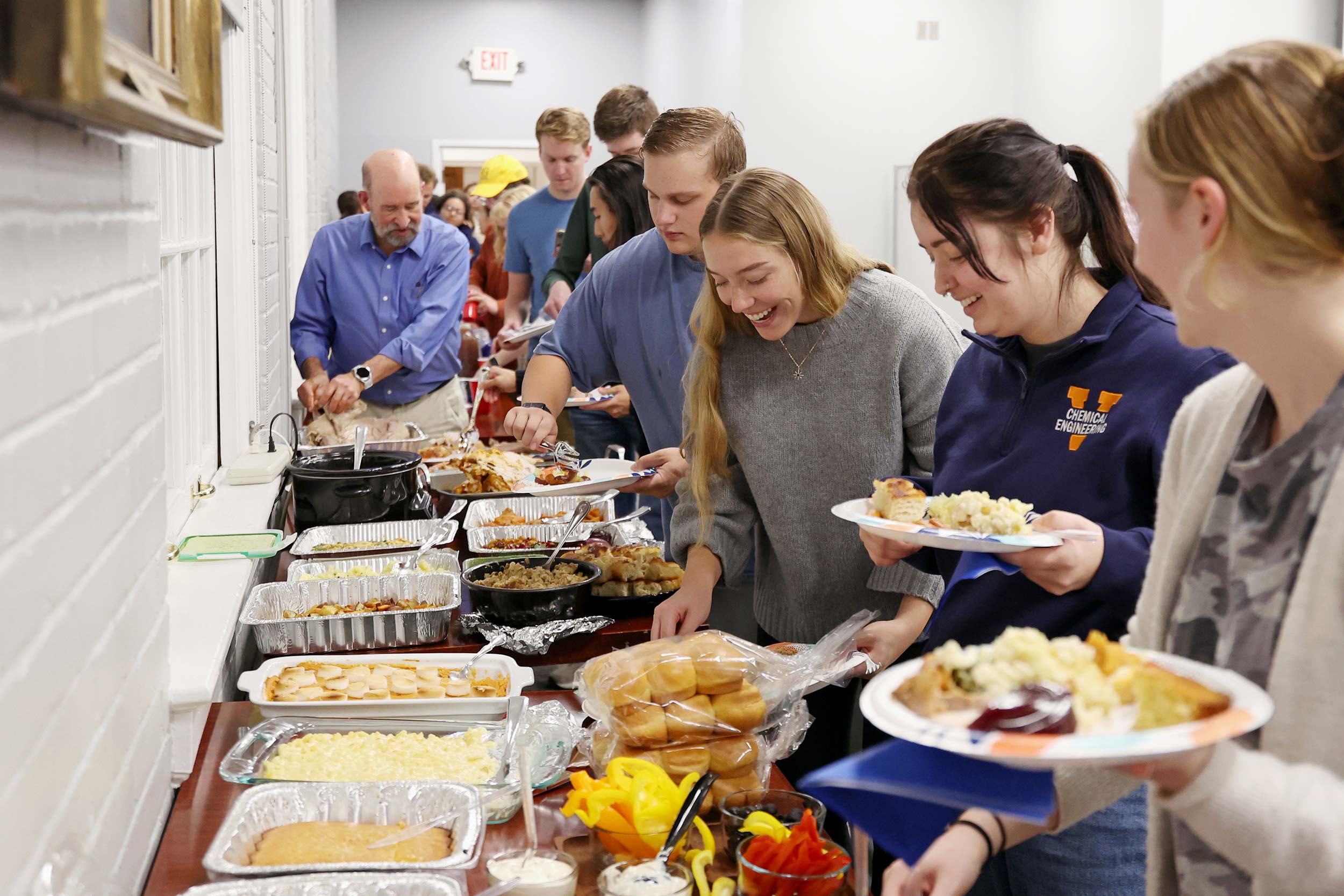The winner was tandoori turkey, by a nose.
The University of Virginia chemical engineering students’ annual Thanksgiving dinner is a friendly cook-off between third- and fourth-year students. In this year’s tradition of dueling turkeys, third-year students Preyonty Rabbani, from Bangladesh and raised in Ashburn, and Harkiran Singh, from India and raised in Fairfax, sought to take the competition up a notch and cook a tandoori turkey. Fourth-year chemical engineering majors Mackenzie Klepsig, of Belaire, Maryland, and Connor Dight, of Harrisonburg, went a more traditional route.
The dinner, which drew about 60 students, faculty and family members, took place Wednesday in Thornton Hall’s Rodman Room. After the meal, the guests cast their votes on a tally board, with the tandoori turkey collecting 30 votes to 28 for the fourth-year students’ entry.
“We thought adding a cultural element could make it a unique dish,” Rabbani said. “I grew up having turkey on Thanksgiving that was marinaded like tandoori chicken and had a rice or naan stuffing instead of bread. So we thought it would be a good idea to try this take on the competition, especially when these flavor profiles are ones we know best.”

Third-year chemical engineering students Harkiran Singh, left, and Preyonty Rabbani prepare to put their winning tandoori turkey in the oven. (Photo by Matt Riley, University Communications)
Rabbani and Singh cooked the 14-pound, pre-brined turkey in a standard convection oven in a roasting pan in Rabbani’s kitchen. The turkey, marinaded in a mixture that covered it in a light orange paste, roasted in a rack over a combination of apples, carrots, red onions and celery. The chefs stuffed the bird with Basmati rice, carrots, peppers, cilantro, mint and celery, then trussed it with twine, following directions from a Martha Stewart video.
“We have been prepping since Sunday, visiting local Indian stores to get the right spices, and we began the marinading process Sunday since tandoori chicken gets its strong flavor from a long marination time,” Rabbani said. “The marinade is a blend of spices, including coriander, cumin, garlic powder, ginger, cloves, mace, fenugreek, cinnamon, black pepper, cardamom and nutmeg, lots of yogurt, ginger garlic paste, mustard oil, lemon and, of course, butter.”
Meanwhile, Klepsig and Dight brined their turkey for about 12 hours and then injected it with a mixture of butter, garlic and herbs. They stuffed it with oranges and lemons, nestled it on a bed of fruit, cooked it for three hours in a Reynolds turkey bag (to retain moisture), then removed the bag to crisp the skin. They used the drippings to make gravy.

Fourth-year chemical engineering majors Connor Dight and Mackenzie Klepsig cooked a butter-infused turkey in a baking bag. (Photo by Matt Riley, University Communications)
Meat from both turkeys was juicy and tasty. The tandoori turkey was falling off the bone, with an exotic aroma and flavor.
Other chemical engineering students brought sides dishes of mashed potatoes, macaroni and cheese, roasted vegetables, stuffing, cornbread, green bean casserole, biscuits, charcuterie, canned cranberry sauce, and a variety of desserts from a store-bought pumpkin pie to homemade cookies and brownies and an impressive cheesecake that also received several votes.
Eric Anderson of the chemical engineering faculty carved the birds with an electric knife.
Rabbani said she inherited her mother’s love of cooking and enjoys sharing food with friends.










